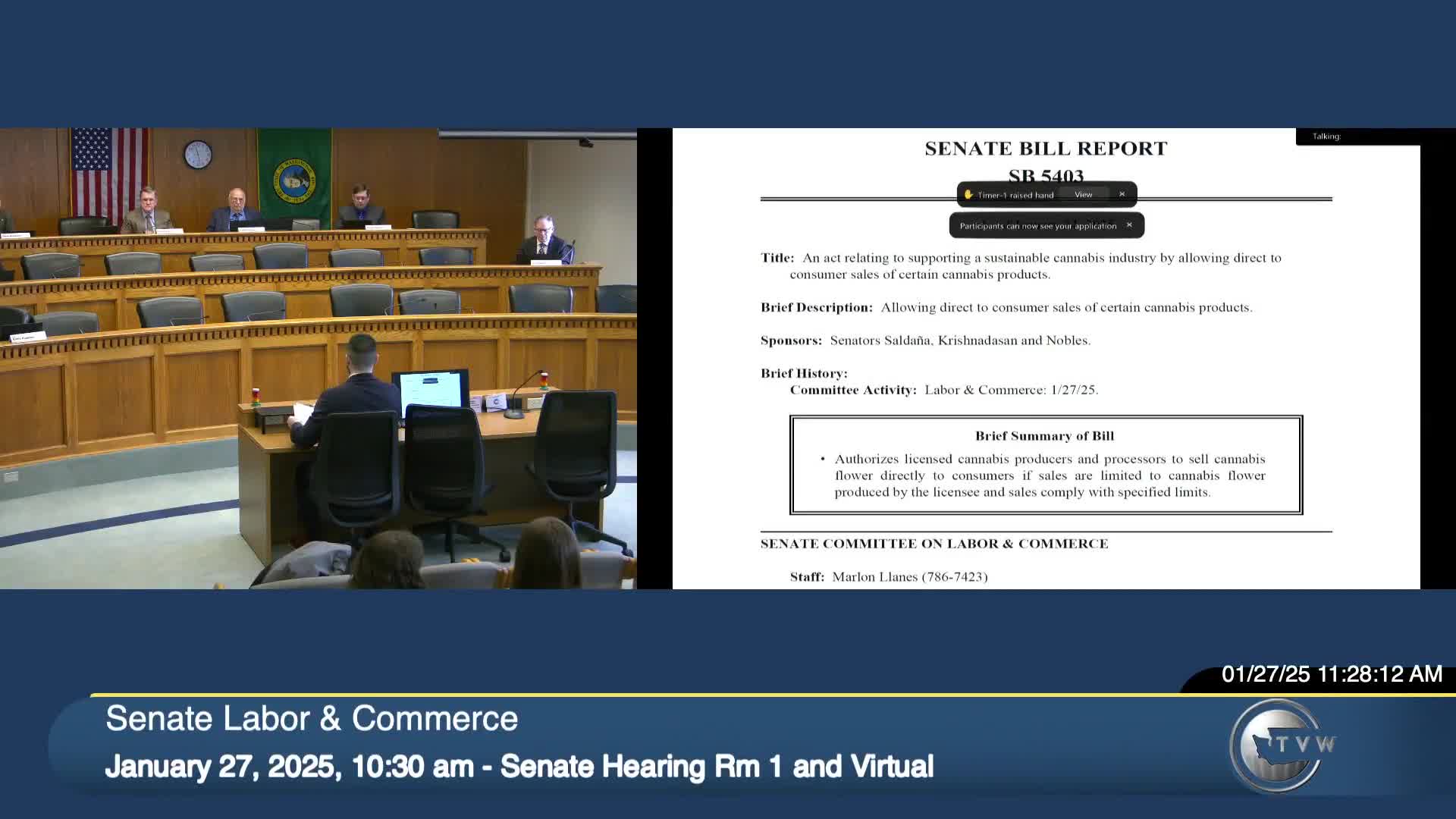Debate on limited direct‑to‑consumer cannabis sales centers on market relief for growers and retail protections
Get AI-powered insights, summaries, and transcripts
Subscribe
Summary
Senate Bill 5403 would allow licensed cannabis producers and processors to sell flower directly to consumers under limits; proponents said the change could help small growers and recapture illicit-market sales, while retailers and public‑health groups raised concerns about vertical integration, security, and youth access.
The Senate Labor & Commerce Committee took extended testimony on Senate Bill 5403, which would authorize licensed cannabis producers and processors to sell cannabis flower directly to consumers when the flower is produced at the licensee's facility and sales comply with statutory purchase limits for adults. The bill directs the Liquor and Cannabis Board (LCB) to adopt implementing rules and requires that the excise tax be reflected in retail pricing and advertising.
Proponents from across the production sector said the measure would provide a necessary revenue stream to small and craft producers facing collapsing wholesale prices and market oversupply. Caitlin Ryan, executive director of the Cannabis Alliance, described the bill as a step to "ensure the longevity and vitality" of Washington's cannabis industry and proposed a possible cap on annual producer sales to prevent consolidation. Tamara Weinman and other small growers described production costs, perishability of flower and the difficulty of competing under current wholesale and retail practices. Several producers said direct sales would allow them to educate consumers about varietals and quality, similar to winery tasting‑room models.
Industry economists and consultants testified on market trends. Bo Whitney of Whitney Economics said Washington's legal market participation has stagnated and estimated a large share of sales remains illicit; he and other witnesses argued that direct sales, with appropriate safeguards, could increase legal participation and stabilize prices.
Retail and trade groups urged caution or opposed the bill. Brooke Davies of the Washington Cannabis Business Association and Trent Mattson of the Washington Cannabis Licensee Association warned that permitting producer direct sales could create vertical integration pressures, market consolidation and zoning and moratorium issues that would disadvantage small retailers and destabilize the retail sector. They expressed concern that the bill's rulemaking language allows LCB to adopt standards that are potentially less stringent than retail rules.
Public‑health and prevention groups urged study and caution. Meghan Moore of the Washington State Public Health Association cautioned that additional retail access channels can complicate efforts to prevent youth access and noted delivery compliance issues seen in alcohol delivery pilots. The Washington Association for Substance Misuse and Violence Prevention recommended the LCB be funded to study effects before sweeping changes are made.
Committee members asked about security, parity with retailer rules and caps on producer sales. Proponents said the bill could be tailored with explicit limits (witnesses mentioned a proposed annual cap as an amendment) and that existing license security regimes and LCB oversight could be applied. Opponents asked for clearer parity with retail requirements and protections for small retailers; proponents and opponents signaled willingness to negotiate limits and definitions if the bill advances.
No formal committee vote was recorded in the hearing.
